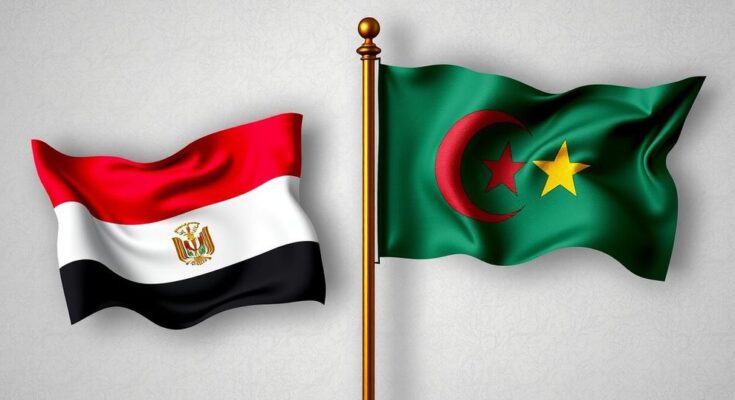Egypt is enhancing its strategic relationships with Eritrea and Somalia in response to perceived threats from Ethiopia. In a summit held in Asmara, the three nations agreed to bolster military cooperation and regional stability, particularly supporting Somalia’s counterterrorism efforts. This alliance arises amid ongoing tensions over the Grand Ethiopian Renaissance Dam and Ethiopia’s maritime agreements, highlighting a significant realignment in the Horn of Africa landscape.
In a recent strategic development, Egypt has strengthened its ties with Eritrea and Somalia to counter perceived threats from Ethiopia. During a summit held in Asmara in October 2024, the leaders of these nations pledged to enhance military cooperation and regional stability, with Egypt agreeing to send troops to assist Somalia in its counterterrorism efforts as part of the African Union mission. This alliance is viewed as a direct reaction to Ethiopia’s growing influence in the Horn of Africa.
The roots of this alliance can be traced back to Egypt’s ongoing tensions with Ethiopia regarding the Grand Ethiopian Renaissance Dam (GERD), which Cairo considers a significant threat to its water security. Furthermore, Ethiopia’s new memorandum of understanding with Somaliland for maritime access has heightened concerns, driving Somalia closer to Egypt and Eritrea. Analysts interpret the summit as a decisive move by Egypt to regain and maintain its influence in the region amidst rising tensions over Nile water rights and access to the Red Sea.
Ethiopia’s plans to reestablish maritime access through its agreement with Somaliland have not only caused alarm in Somalia, which perceives this as a challenge to its sovereignty, but have also spurred Egypt and Eritrea to enhance their military and strategic cooperation with Mogadishu. Egypt’s initiatives include providing military support, arms shipments to Somalia, and the formation of a joint foreign ministers’ committee to oversee continued collaboration in various sectors.
The ongoing alliance among Egypt, Eritrea, and Somalia holds potential implications for the regional balance of power, possibly leading to escalated military and diplomatic conflicts. The forthcoming months will be pivotal in determining how this strategic grouping will affect the unresolved disputes concerning Nile waters and Red Sea access.
The geopolitical landscape of the Horn of Africa has been significantly shaped by the tensions surrounding the management and distribution of water resources, particularly concerning the Nile River. Egypt has long held concerns over Ethiopia’s construction of the Grand Ethiopian Renaissance Dam, which it fears could severely diminish its share of Nile waters. Concurrently, Ethiopia’s efforts to establish maritime access through agreements such as the one with Somaliland have further complicated regional dynamics, pushing Egypt to solidify its alliances with Eritrea and Somalia. This trilateral cooperation is a response to both shared security threats and the overarching goal of mitigating Ethiopia’s expanding regional influence.
The coalition formed by Egypt, Eritrea, and Somalia represents a strategic approach to countering Ethiopia’s influence in the Horn of Africa, particularly in light of ongoing tensions over water rights and security concerns. As these nations enhance their military cooperation and diplomatic strategies, the evolving dynamics could shift the power balance in the region. Observers will watch closely to see how these alliances unfold in the coming months and their potential impact on broader regional stability.
Original Source: www.garoweonline.com




